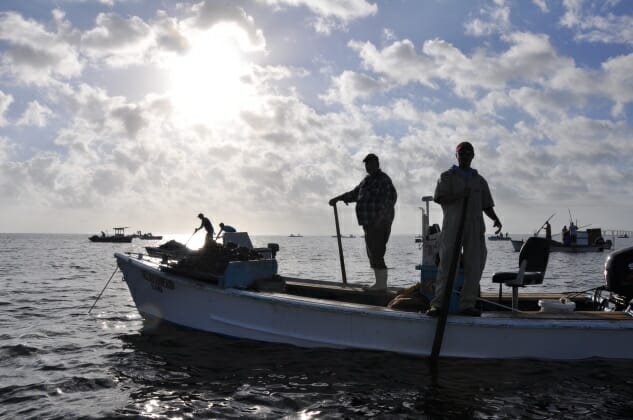Warming Signs: Climate Change Means A Sea Change for Fishermen and Scientists

Often, when we talk about climate change, it seems like a far-off scenario. We talk in terms of saving the planet for future generations and predict disruptive sea level rise within the century. But the effects of climate change are already felt around the world; future changes will only intensify them.
![]()
Lobsters used to lurk in the waters of Long Island. But these days, New York fisherman have trouble finding any—while their peers 500 miles away in Maine are seeing bumper crops. Instead, the lobstermen of Long Island now catch more crabs and other shellfish—which, in turn, leaves crabbers further down the East Coast worried about the future of their own livelihoods.
Last week I wrote about how climate change is prompting a fish migration that will directly affect what’s served—or not served—for dinner. But these rapid marine changes won’t just affect our appetites; they also represent a sea change for the fisherman and communities that depend on the sea for jobs and income.
![]()
Fishing Regulations Struggle to Catch Up
Of course, catching new fish in your usual fishing haunt is trickier than just changing your bait. Regulations guide what you may catch and how much of it, usually state by state—and they aren’t changing as fast as the environment is. John A. Manderson, a research biologist at the NOAA (the National Oceanic and Atmospheric Administration), noted that sea creatures are moving north 10 times faster than their land-based animals.
“Our ideas of property rights and laws are purely land-based,” Manderson told The New York Times. “But the ocean is all about flux and turbulence and movement.”
To get around these increasingly obsolete laws, some fishermen are catching fish further north and then traveling to areas where it is legal to bring large quantities to shore. Such slippery adherence to regulations sparked mackerel wars in the North Sea back in 2010, and the dispute wasn’t settled for four years.
Furthermore, such an expensive round-about the law is not an option for everyone, especially those with smaller fishing operations.

Photo: Sonja, CC-BY 2.0
-

-

-

-

-

-

-

-

-

-

-

-

-

-

-

-

-

-

-

-

-

-

-

-

-

-

-

-

-

-

-

-

-

-

-

-

-

-

-

-








































